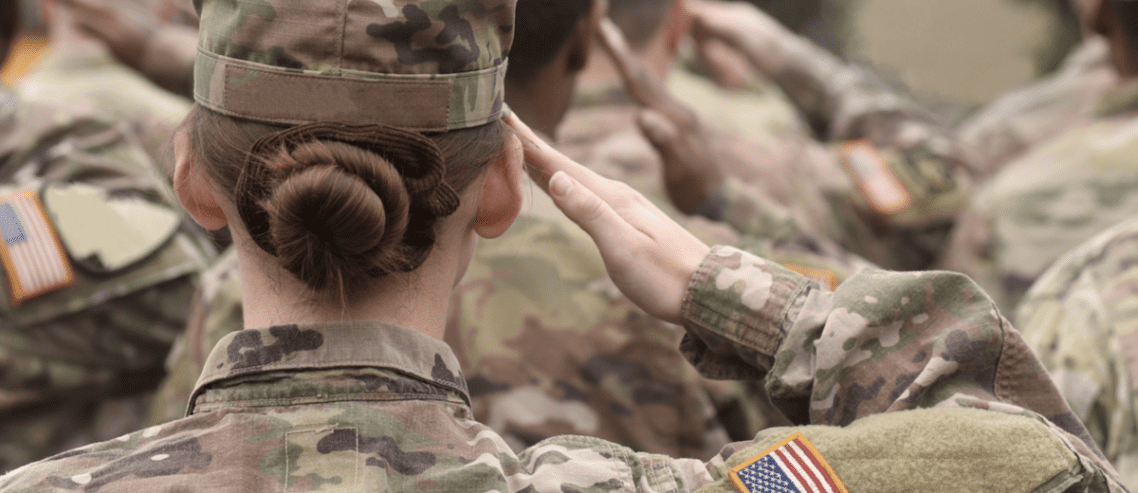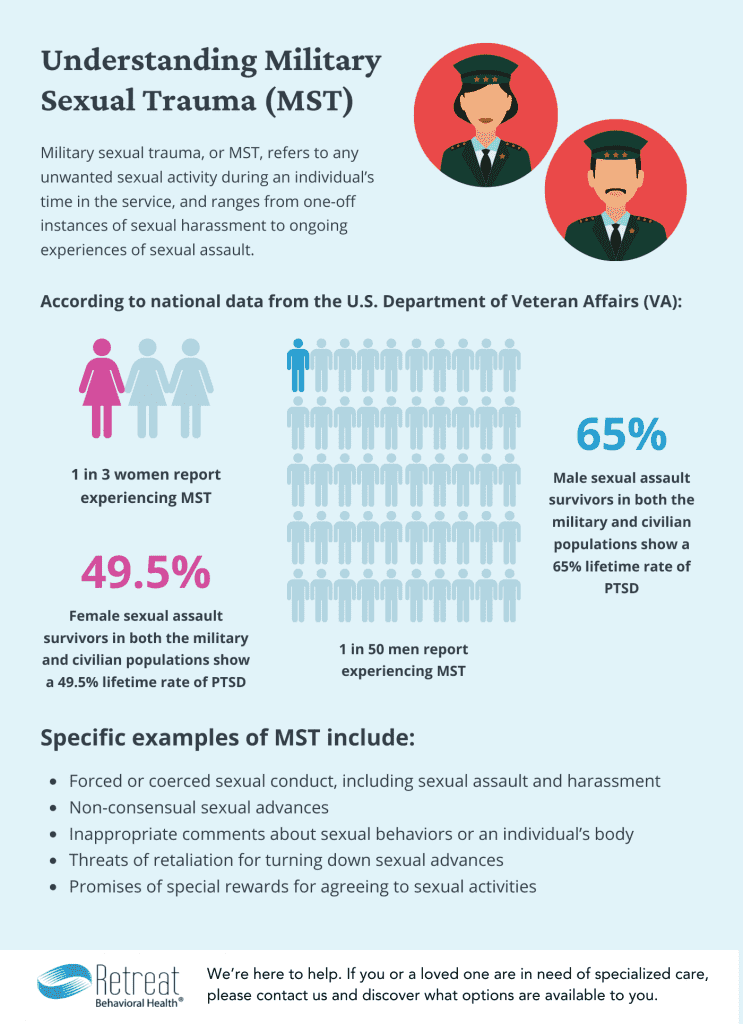Understanding Military Sexual Trauma (MST)
Military sexual trauma (MST) is a reality for many individuals serving in the armed forces. According to national data from the U.S. Department of Veteran Affairs (VA), about one in three women and one in 50 men report experiencing MST, and it’s likely that there are also a significant number of individuals who experience MST but never report it.
It’s important to recognize that unwanted sexual behaviors are not a standard part of being in the military, nor are they the fault of the individual who experiences them. Understanding what military sexual trauma is—and the lifelong mental health consequences it can have—can be an essential first step in seeking help and moving forward, and it can also go a long way toward reducing the stigma of MST and encouraging more people to get support if and when they need it.
What is Military Sexual Trauma?
Military sexual trauma, or MST, refers to any unwanted sexual activity during an individual’s time in the service, and ranges from one-off instances of sexual harassment to ongoing experiences of sexual assault.
Specific examples of MST include:
- Inappropriate comments about sexual behaviors or an individual’s body
- Non-consensual sexual advances or conduct
- Threats of retaliation for turning down sexual advances
- Promises of special rewards for agreeing to sexual activities
- Coerced sexual encounters
MST can occur on base or off, and it doesn’t matter whether the perpetrator and/or victim were on or off-duty. The identity or characteristics of the perpetrator do not matter either, and there is never an excuse for sexual harassment or assault of any kind.
Notably, while military sexual trauma statistics show fewer reports from men than women, the VA notes that the disproportionate number of men in the armed forces means that rates are high among military members of both genders. Anyone can be a victim of MST, and anyone can suffer mental health consequences as a result—including post-traumatic stress disorder (PTSD).
PTSD Due to MST: How Military Sexual Trauma Effects Veterans and Current Members
Any type of trauma can lead to PTSD, including military sexual trauma. However, when it comes to MST, PTSD may present itself in many different ways, and it’s possible that two individuals will have very different symptoms and side effects. This is true for all instances of PTSD, so it’s crucial that people know what to look for and what may be indicative of a serious traumatic response.
Possible signs of PTSD that victims of MST may experience include:
- Trouble sleeping
- Strong and unpredictable emotions, such as feeling of depression, anger, and irritability, as well as sudden—and sometimes seemingly untriggered—emotional outbursts
- Difficulties with memory and/or concentration
- Substance use as a means of self medication
- Feelings of self-blame, low self-esteem, or loss of identity
- Physical health issues or changes, including weight loss or gain, chronic pain, and loss of appetite
- Self-harm or thoughts of self-harm
PTSD can appear in the immediate aftermath of MST, or it can appear years later. Other disorders associated with MST include depression, anxiety, and substance use disorder.
Seeking Help for MST
Despite MST being common, many people avoid seeking help—or even reporting it. This is often due to fear of retaliation or judgment, though self-doubt and avoidance may also be contributing factors. Those who do seek help though will find many resources and programs available for the treatment of PTSD and MST in the military.
At Retreat, we offer dedicated mental health services for veterans and active service members, and this includes PTSD and MST treatment. We also encourage survivors to visit the VA’s MST site, as well as to download Beyond MST, a free VA self-help app.
If you or a loved one have suffered MST, please know that help is available. Learn more about our programs for veterans by visiting our Healing Our Heroes page and get the support you need to move forward.





